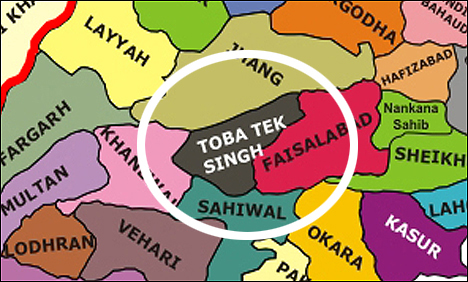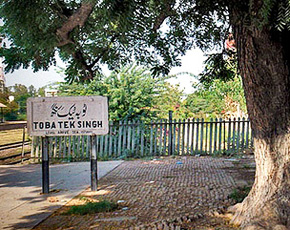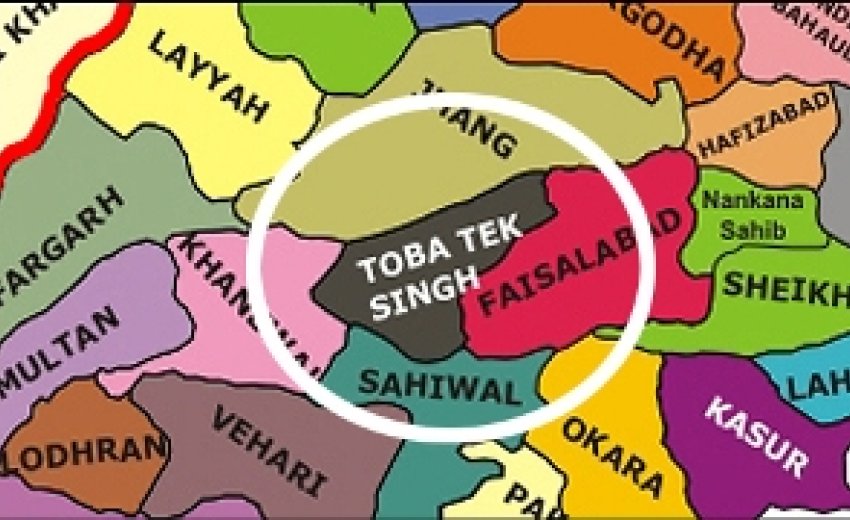For whom the bell tolls
The 16th day of April 1853 is special in the Indian history. The day was a public holiday. At 3:30 pm, as the 21 guns roared together, the first train carrying Lady Falkland, wife of Governor of Bombay, along with 400 special invitees, steamed off from Bombay to Thane.
Ever since the engine rolled off the tracks, there have been new dimensions to the distances, relations and emotions. Abaseen Express, Khyber Mail and Calcutta Mail were not just the names of the trains but the experiences of hearts and souls. Now that we live in the days of burnt and non functional trains, I still have a few pleasant memories associated with train travels. These memoirs are the dialogues I had with myself while sitting by the windows or standing at the door as the train moved on. In the era of Cloud and Wi-fi communications, I hope you will like them.
 Across the slums of Gojra, the memory of a saint is enlivened by a city. Before Tek Singh came and lodged here, it was a deserted place by the pond (Toba in the local language). He made it a point to service thirsty passer-byes from this pond. Years later, his act of charity founded the city, which is now named after him, Toba Tek Singh.
Across the slums of Gojra, the memory of a saint is enlivened by a city. Before Tek Singh came and lodged here, it was a deserted place by the pond (Toba in the local language). He made it a point to service thirsty passer-byes from this pond. Years later, his act of charity founded the city, which is now named after him, Toba Tek Singh.
Other than Manto, the story of Toba Tek Singh is also told by a local farmer, Ameer Chand Kohli. In a city of Muslim majority, he headed a well-to-do Hindu family. After the birth of his fifth daughter, Ameer Chand started visiting saints and shrines for a son, who could carry his name. In one such visit to a faqeer, he pledged that if he ever had a son, he would devote him to Sikhism. After a year, a baby boy was born. Ameer Chand named him Bishon Singh and started raising him as a Sikh. Life at the Ameer Chand household became festive during the summers, when all his daughters, along with their children visited Toba for the entire season. The sisters gossiped under the tree and the kids played out in the fields.
Now that the grandchildren of Ameer Chand have dispersed from the shores of Australia to the Islands of West Indies and have taken up residences at Washington and Abu Dhabi, they still remember the favor of that Sikh saint and the summers at Toba Tek Singh.
Like every year, the family of Ameer Chand had gathered at Toba Tek Singh during the August of 1947. One day, on his way back from the fields, he saw a large crowd, smoldering in anguish at the chowk. Standing at the centre of the crowd, a Muslim migrant was telling the story of his journey to Toba. A few women from his convoy had jumped into dark wells to save their honor, while others who chose to live, now told the brutal tale of rape and wrath. Ameer Chand felt that the journey, sufferings and helplessness had cast some permanent features on his face. At his home, Ameer Chand sat in the bethak and discussed with Majhi Ram, the personal servant since ages, about how times had changed.
Before dusk, a few blasts were heard and hell broke loose. Driven by frenzy, was the angry mob, attacking Hindu houses. Everyone ran for their lives, caring the least for luggage. The voice of the crowd drew near, as they ran from street to street. While the crowd increased in number, the alleys decreased. When they reached the last lane, the police finally woke up to action. The Hindu and Sikh population gathered and moved to the Grain Market, a large compound in the city. The police escorted and protected them from people, people who had been their neighbors for generations.
When the stay at the Grain Market prolonged, people started dying of hunger and of disease. Between the man and his creator, hung a feeble layer of canvas, which dare not stop anything, save the prayers. The weather made it impossible to live inside the tent and the young daughters made it impossible to live outside. With every passing day, rations decreased and ailments increased. Ameer Chand recalled his childhood maulvi of the madressah, who had taught him that wars in India were always amongst the kings and the people stayed out of it. This time, however, the kings had made peace amongst themselves, while the people killed each other.
Everyone worried about Majhi Ram, who was missing since the first day of the riots. No one knew that Majhi Ram had converted to Majhi Khan and sided with his new brothers in faith to loot Ameer Chand’s house.
After a two-months stay at the camp, a special refugee train arrived from India. Their lips trembled with silent prayers and their bodies shivered with fear of the unknown as they filled the congested compartments. This was common to railways stations across India, that summer. Every one of the millions who crossed this new found boundary had thousands of stories to tell and everyone carried these stories on his person. Parched lips, mucus in their eyes, dust patterned on their facial features, dark lines of burns on their necks and a saltish flavor on their tongues, were all the shades of these stories. Taps at railway stations had dried up long ago and water was not found anywhere enroute.
 Once the train left Toba and reached Lahore, it awaited its fate at the station. The safety of the outbound train was conditional to the inbound train. If the train, coming from India, safely made it here, this train could whistle off but if it carried corpses, it was to be returned with the same stock.
Once the train left Toba and reached Lahore, it awaited its fate at the station. The safety of the outbound train was conditional to the inbound train. If the train, coming from India, safely made it here, this train could whistle off but if it carried corpses, it was to be returned with the same stock.
The whistles of the arriving train were heard with anxiety and soon people were spotted leaning against the footrest. The refugee special was allowed to leave for Patiala via Amritsar. At Patiala, the passengers got off the train amid celebrations, and were garlanded. The scene reminded Ameer Chand of the Lahore Railway station and he had a feeling of Déjà vu. The large view mirrors in the train had the etched acronym of the NWR (North Western Railway). For the first time, in two months, Ameer Chand saw his face closely. The features of that displaced person caused by the journey, suffering and helplessness had started to appear on his face too.
“Toba Tek Singh” as told by Ameer Chand is now more than 60 years old but that of Manto appears fresh.
MANTO's TOBA TEK SINGH” Movie Promotion Event Photo
The story of “Toba Tek Singh” apparently focuses on a mentally unstable old man, but within its words, it carries the piercing pain of partition. Caught between the geographical divide and emotional trauma, Bishen Singh disparagingly tells the awful truth of politics. As an inmate at a mental facility in Pakistan, his heart betrayed his body and his soul divorced his identity. This probably was the toughest of partitions.
Having little knowledge about politics and the politicians of his time, Bishen Singh had no one to apportion the blame so he took it out upon himself.
When Manto read “Toba Tek Singh” for the first time in the Pak Tea House, he had worn out of his age. Before reading the last lines in his classy dramatic voice, he paused to inhale the silence in the hall and wiped the tears that rolled down silently.
“Around Dawn, Bishen Singh uttered a shrieking sound and collapsed. Officers ran toward him and saw that the man who had been standing for the past 15 years now lay still, on his chest. On one side, across the barbed wire, was India and on the other side, was Pakistan. In between the two, on a piece of land, which was neither Pakistan nor India, lay Toba Tek Singh”.
Read this blog in Urdu here.
Listen to this blog in Urdu:

